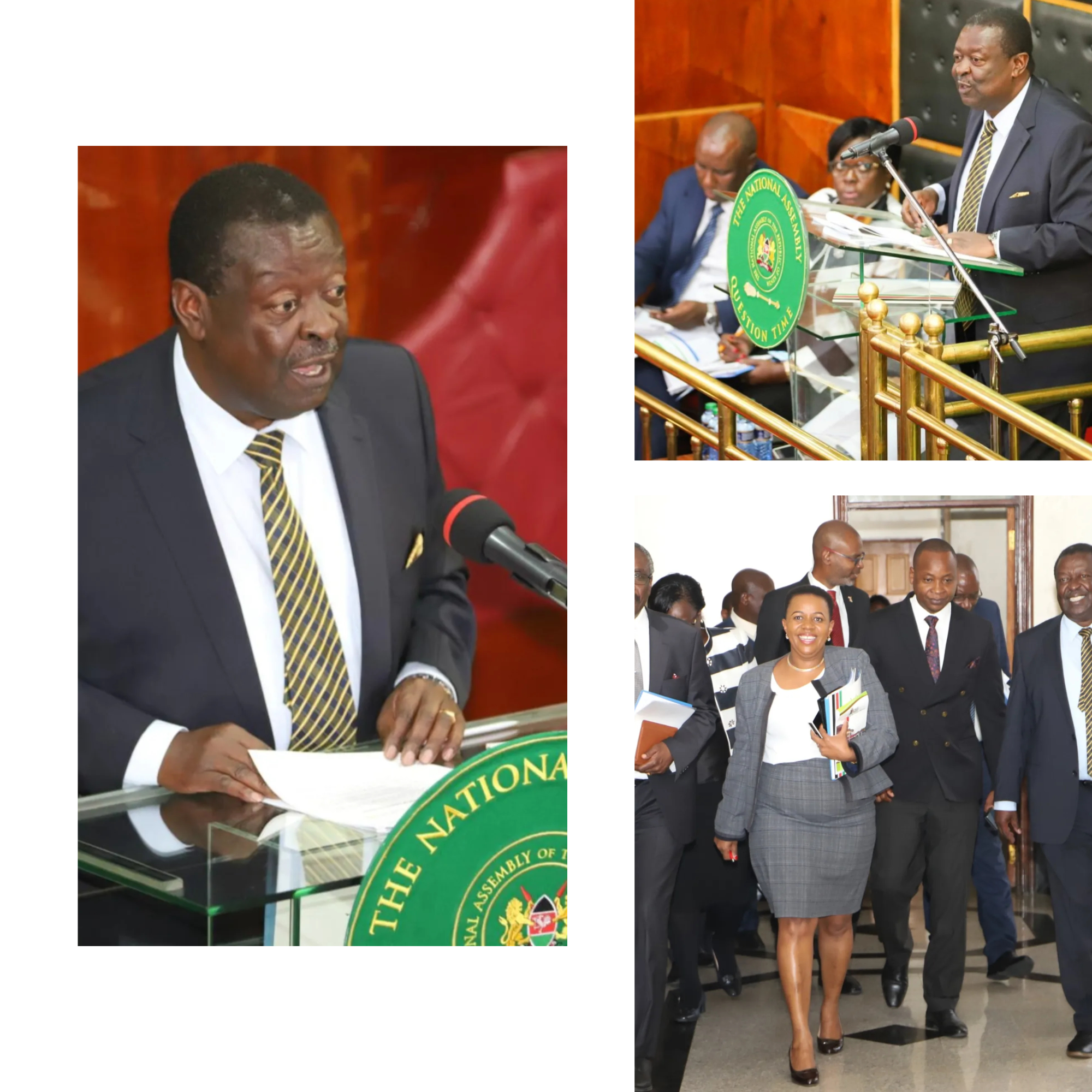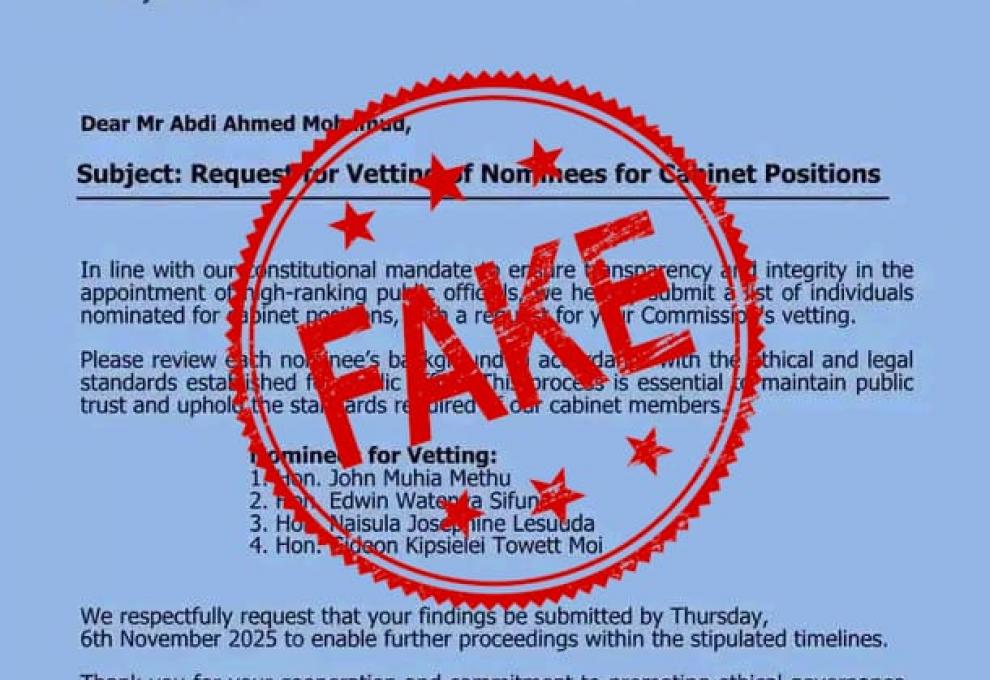PRIME CABINET SECRETARY RESPONDS TO MPS QUESTIONS ON DROUGHT MITIGATION
The Government of Kenya has spent over Kshs.19 billion since July 2022 to alleviate the impact of drought in the country's Arid and Semi Arid Areas, according to Rt. Hon. Musalia Mudavadi, the Prime Cabinet Secretary.
Rt. Hon. Musalia Mudavadi, the Prime Cabinet Secretary today responded to Questions by Hon. Yusuf Hassan, MP Kamukunji Constituency regarding the drought management, supply and distribution of relief food in Arid and Semi Arid Areas.
Hon. Mudavadi disclosed that the Ministry of East African Community, the ASALs, and Regional Development had conducted a National Food and Nutrition Security Assessment to establish the impact of the drought, identify the number of people affected, and determine necessary interventions. The assessment revealed that approximately 4.4 million people in the ASALs and an additional 495,362 in nine non-traditional ASAL regions faced acute food insecurity, and over 2.5 million livestock deaths were attributable to the drought.
Members of the National Assembly learnt that the worst affected counties were identified as Marsabit, Garissa, Isiolo, Mandera, Tana River, Samburu, Turkana, and Narok, where people were displaced in large numbers, and livestock and household items were swept away by floods.
In a session chaired by Speaker of the National Assembly, Hon. Moses Wetang'ula,MP, Members of the National Assembly asked forty supplementary Questions regarding measures to replenish livestock that have perished due to drought, over reliance on rain fed agriculture and the Safety Net programmes the Government has put in place to protect from recurring drought.
"Interventions have been in terms of relief food, emergency relief cash transfers, support to the school feeding program, cash transfers under the Hunger Safety Net Program, water trucking, and livestock off-take", said Hon. Musalia Mudavadi.
He further added that county governments had also provided relief food assistance, scaled up cash transfers, livestock feeds and vaccination, and water trucking, as well as overseeing peace dialogues and resource-use agreements.
Documents tabled during the plenary session revealed that development partners, UN agencies, NGOs, and other non-state actors have contributed more than Ksh. 48 Billion towards drought response interventions, while the private sector-led National Steering Committee on Drought Response (NSCDR) has distributed 163,150 food hampers worth Ksh. 450 Million to approximately 978,900 most affected persons.
While making his submissions to the National Assembly, Rt. Hon. Musalia Mudavadi informed lawmakers that the Government has also taken other steps to ensure relief supplies reach as many people as possible and to scale up relief and humanitarian response to save lives, alleviate suffering, and bolster human dignity among affected parties.
















